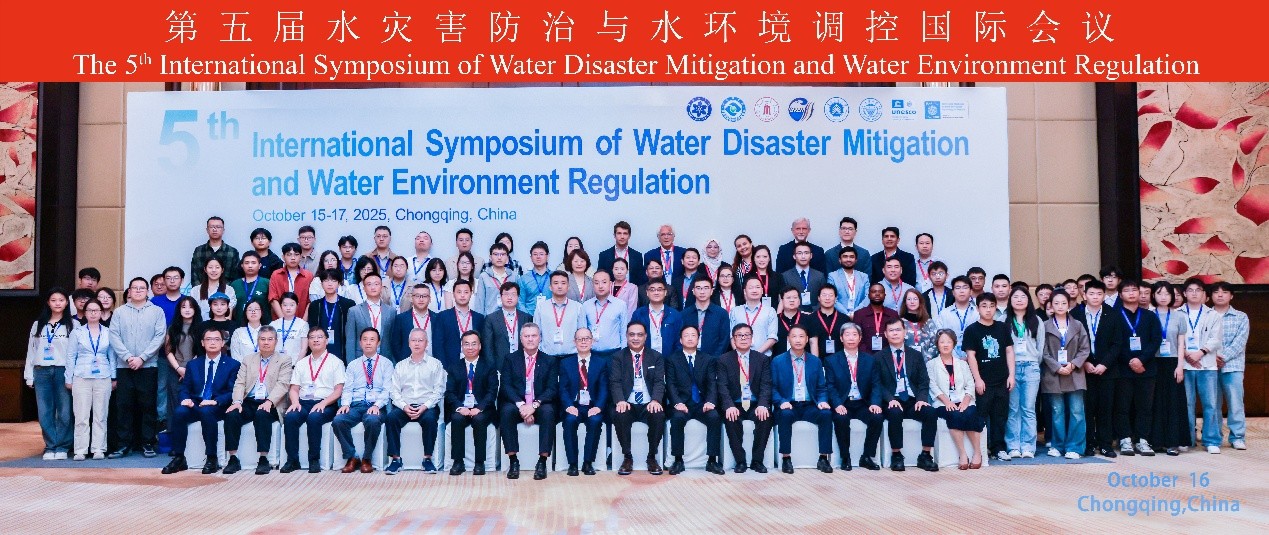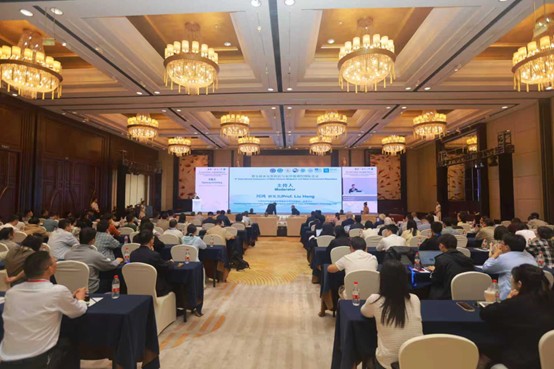Summary report 5th International Symposium on Water Disaster Mitigation and Water Environment Regulation
The 5th International Symposium on Water Disaster Mitigation and Water Environment Regulation (WDWE2025) successfully convened in Chongqing from October 15-17, 2025. Organized by Chongqing Institute and Sichuan University under the guidance of Chongqing's Science & Technology Bureau and Municipal Federation of Science & Technology Associations, with support from UNESCO and IAHR, the symposium focused on "Water Security in Megacities, Climate Change, and Engineering Countermeasures."

Keynote speakers included Vice Chairman Du Huiping of Chongqing's CPPCC, UNESCO's Regional Director for East Asia Shahbaz Khan, Canadian Academy of Engineering member Ioan Nistor, and Academician Lin Pengzhi of the European Academy of Sciences and Arts. Over 120 experts from 18 countries, along with trainees from the Belt and Road International Advanced Training Program on Eco-Hydrology, participated in discussions on urban water system risk management, eco-environmental evolution of water projects, and river basin governance.
During the opening ceremony, speakers emphasized global collaboration to address water security challenges amid urbanization and climate change. They highlighted China's achievements in water science and engineering, advocating for ecological hydrology solutions to ensure water safety, climate resilience, and green infrastructure. Academician Li Zhe presented the symposium's preparation status, while leaders presented Chongqing-themed learning kits to trainees.
The event featured plenary sessions on coastal engineering (Ioan Nistor), Himalayan water cycles (Professor Yu Zhongbo), algal bloom forecasting (Researcher Chen Qiuan), and Three Gorges reservoir landslide mitigation (Professor Wang Pingyi). A special forum for Belt and Road trainees and field research in Chongqing further enriched the program.
Attendees praised the symposium as a high-level platform for global water governance, providing critical scientific insights for sustainable megacity development. The conference enhanced Chongqing's international academic influence, contributing to global water security through collaborative solutions for flood control, water supply, and ecosystem protection.
Supported by Chongqing's Environmental Bureau, Housing & Urban-Rural Development Commission, and Water Resources Group, the symposium concluded with strengthened partnerships among universities, research institutes, and government agencies.
